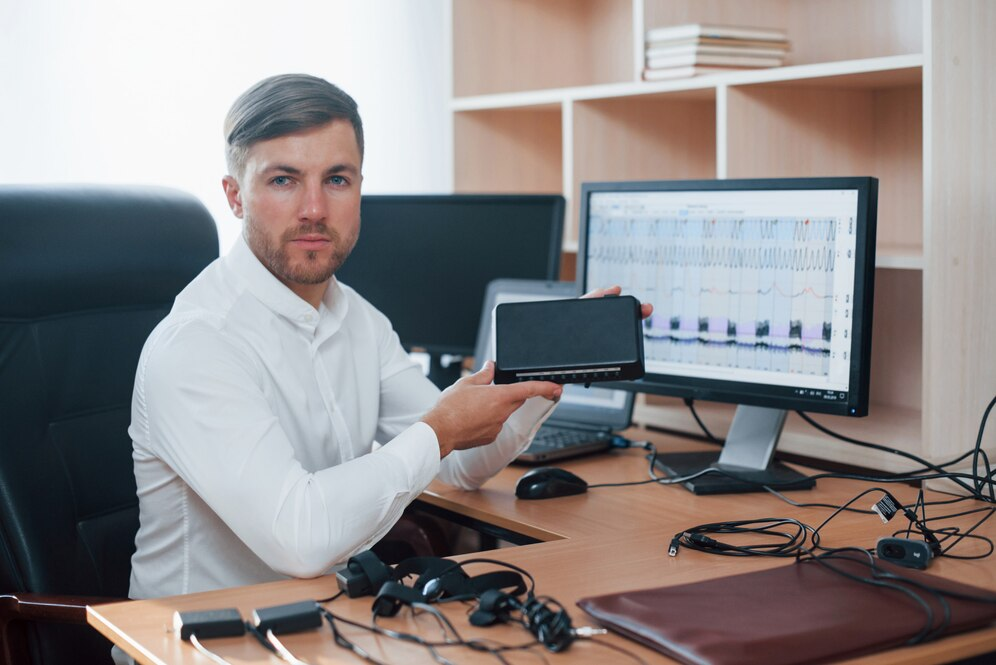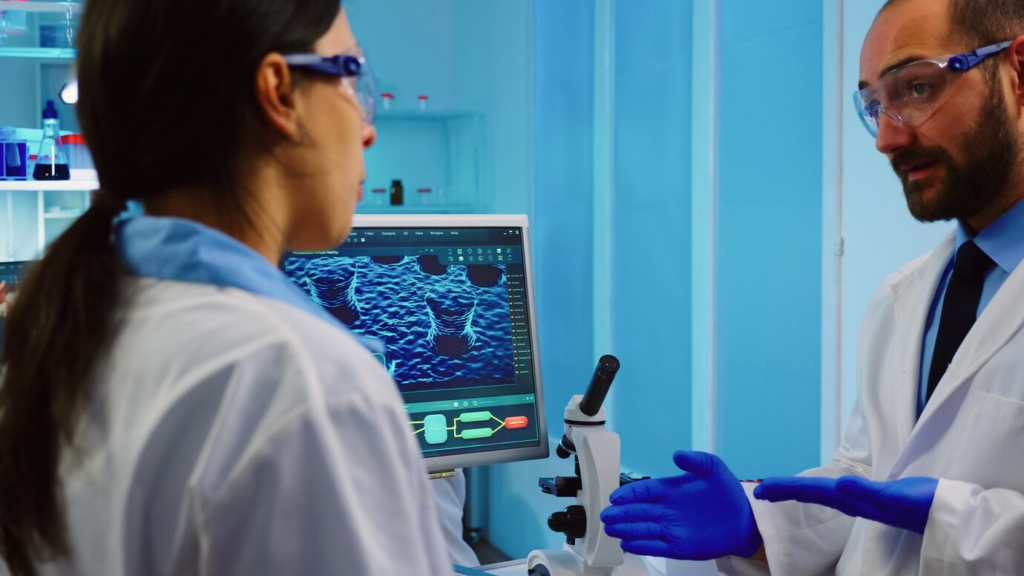
Such accepted practitioners of neurofeedback and biofeedback are alternately referred to as neurofeedback and biofeedback psychotherapists. These specialists help clients control or power up their own mental and physical activities. But there are many practitioners and it is important to identify the right qualifications, certifications, and experience. These practices are aimed at resolving common queries like, what is the procedure for finding a practitioner of neurofeedback and biofeedback that fits your requirements?
What qualifications should a neurofeedback practitioner have?
A neurofeedback practitioner should have certifications like BCIA (Biofeedback Certification International Alliance). They should also have a background in psychology, neuroscience, or a related field. Experience in neurofeedback therapy and ongoing training are key indicators of a well-qualified practitioner.
As with any Biofeedback qualifications and certifications, it is important when looking at any potential practitioner of neurofeedback, that the practitioner belongs to such organizations as the BCIA. Such practitioners have demonstrated the attainment of an established standard in education, ethics, and clinical practice.
Furthermore, these professionals need to have a good education in such areas as psychology, neuroscience, neurotherapy etc. Ordinarily, they would grasp the basic principles of brain and behavior. Practicing neurofeedback for some time and addressing professional development boosts their credentials. A qualified practitioner is constantly in search of more effective ways of practicing neurofeedback.
How do I verify a biofeedback practitioner’s credentials?
To verify a biofeedback practitioner’s credentials, check for certifications like BCIA or AAPB (Association for Applied Psychophysiology and Biofeedback). Verify their training and experience in biofeedback techniques. Reviewing their professional affiliations and client testimonials can also provide insights into their credibility.
Ensuring that biofeedback practitioners are properly trained requires numerous steps. The process begins with looking up the specific certification if there is any from attractive international bodies which include the Biofeedback Certification International Alliance or the Association for Applied Psychophysiology and Biofeedback. Such certifications help determine the person’s qualification, followed by a series of education and ethical requirements for practitioners.
Also, does he or she explain what formal education they have regarding biofeedback therapies and how many there are in total? A traceable CPD activity and membership in a practicing body suggests the provision of quality treatment. Reading client feedback and recommendations can help determine such information as well.

What questions should I ask a neurofeedback practitioner?
Ask about their certification, experience, and training in neurofeedback. Inquire about the protocols they use and how they tailor treatments to individual needs. Understanding their approach to neurofeedback and assessing their experience with your specific condition is crucial.
When seeking the services of a neurologist practicing neurofeedback, it is necessary to ask in order to confirm his/her qualifications. For starters, check the existing documents in their possession, e.g. BCIA certificates, and to what discipline, such as psychology or neuroscience, do they belong. They should be able to explain how long they have been providing this therapy and with what type of patients or conditions.
It would also be advantageous to know the protocols they employ, such as what strategies they incorporate to modify the treatments according to the different brainwave patterns of the patients. In addition, such as how long the client is likely to be in treatment. Many competent specialists will explain how carefully they employ them and how flexible their practice is, which is self-adjusted to the requirements of each patient.
How important is experience in neurofeedback and biofeedback?
Experience is crucial in neurofeedback and biofeedback, as it ensures the practitioner has practical knowledge in applying techniques effectively. Experienced practitioners can tailor sessions to individual needs and adapt protocols. This expertise leads to more effective and personalized treatment outcomes.
Experience matters a lot when it comes to the application of both neurofeedback and biofeedback therapy. In the hands of an accomplished practitioner who has dealt with many clients and many conditions, they have enough knowledge to customize the treatments. They are also able to analyze the results obtained after performing neurofeedback or biofeedback control and even modify the training procedures in order to improve the outcome obtained.
This flexibility is important since no two people will have the same brainwaves and physiological responses. An experienced practitioner is also better positioned to handle any other issues that come up, which could make a treatment session unproductive or unsafe. This knowledge they acquire helps me carry out the better diagnosis of the client’s problems and eventually better their treatment outcomes.
Can I find a qualified practitioner online?
You can find qualified neurofeedback and biofeedback practitioners online. Look for practitioners with verified certifications, detailed professional profiles, and positive client reviews. Ensure they offer initial consultations to discuss your needs and verify their expertise through professional associations and directories.
With appropriate effort, it is not hard to find a qualified bio or neurofeedback practitioner through the internet. Start with a search for professional associations, listing all trained practitioners such as the BCIA or AAPB. Look for images but more so, reading their bios is very important, a person’s resume, letter of recommendation, and fields of specialty so as to know an individual’s background. Also check their ratings, reviews, and other relevant data for the reputation of the practitioner.
Most practitioners provide a free first appointment at which you can present your situation and see they fit your needs. Never consider any practitioners who do not have certification and relevant experience. Using professional association directories is the best way not to encounter practitioners who do not meet the professional criteria of the field leading to satisfactory and positive outcomes of the therapy sessions.

What red flags should I watch for when choosing a practitioner?
Watch for red flags such as lack of certification, vague qualifications, and unrealistic promises. Avoid practitioners who dismiss the need for personalized treatment or offer a one-size-fits-all approach. Transparency, clear communication, and professional credentials are essential in choosing a trustworthy practitioner.
In the process of choosing a neurofeedback or biofeedback practitioner, there are several red flags that can reflect the absence of professionalism or competence. One reason that is especially disturbing is that none of them display any certification from bodies such as BCIA or AAPB. Practitioners who make tempting but unrealistic promises to patients, such as a cure guaranteed or results in one visit should raise red flags.
Vague or shallow statements about their skills and expertise are another answer not to their benefit. Also, stay away from those who prescribe the same treatment to all patients, as neurofeedback and biofeedback require an individualized approach. Competence shouldn’t be questioned. Methods used should be well understood, questions adequately answered, and no selective care given without a good reason.
How do I know if a practitioner is right for me?
The right practitioner will have the necessary qualifications, experience, and a tailored approach to your needs. They should be open to discussing your condition, explaining their methods, and setting realistic expectations. Trust your instincts and ensure clear, respectful communication throughout the process.
When considering neurofeedback or biofeedback treatment one has to take into account their qualifications, experience, and attitudes. She or he should be acquainted with BCIA certification and have been trained in fields like psychology or neuroscience. They should be able to assess your condition and treatment plan during the first meetings as well as describe their working processes.
They must also be participants in the procedures and provide guidance with respect to their limitations. It is necessary to establish trust and comfort; you must be understood, appreciated, and informed. You can be sure that your needs will be attended to, and the health professionals will dedicate themselves to your rehabilitation.
Conclusion:
In clinical practice, it is necessary to search deep enough for a practitioner in neurofeedback and biofeedback to succeed in treatment. Based on the requirements, practical skills, and overall approach, you can enjoy effective and safe treatment. Seek information and don’t be afraid to ask the right questions to eliminate the chances of risks. A responsible health practitioner will provide effective management, and neurofeedback biofeedback to help you upside gain emotional and somatic well-being.

